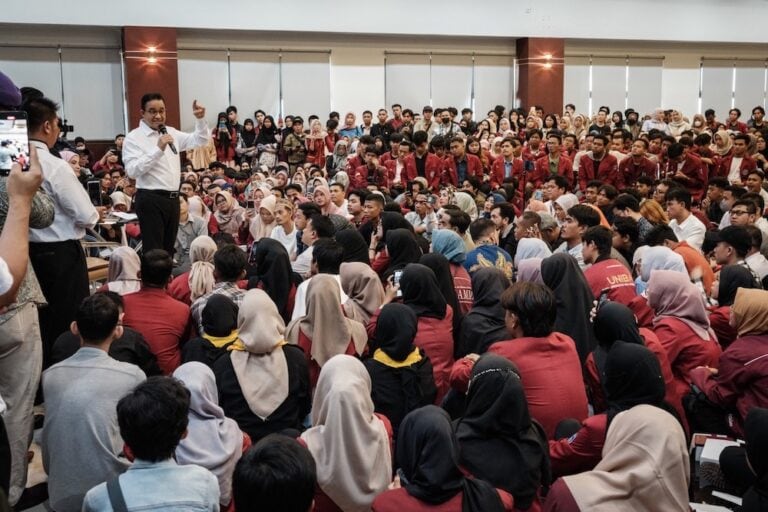(SEAPA/IFEX) – The following is a 19 August 2004 SEAPA report: Litigation and harassment of the press in Indonesia Over the last year, Indonesian authorities and public figures have increasingly used criminal laws and courts against journalists to silence members of the press. A law that criminalises defamation, in particular, hangs over the heads of […]
(SEAPA/IFEX) – The following is a 19 August 2004 SEAPA report:
Litigation and harassment of the press in Indonesia
Over the last year, Indonesian authorities and public figures have increasingly used criminal laws and courts against journalists to silence members of the press. A law that criminalises defamation, in particular, hangs over the heads of the Indonesian media, threatening journalists with imprisonment and crippling fines.
Indonesia’s national media outlets, including the Rakyat Merdeka daily, Tempo magazine and Kompas newspaper, are as vulnerable as local media throughout Indonesia.
In recent weeks, cases against Tempo magazine have again highlighted the chilling effect this troubling aspect of the Indonesian legal system is having on the Indonesian media. At least nine lawsuits have been lodged against Tempo magazine and members of its staff. In practically all these cases, the litigants deliberately avoided the mechanisms provided for under Press Law (UU Pers) No.40/1999 – the legal instrument put in place precisely for challenging the Indonesian press on its professionalism, truthfulness, and fairness.
Instead, those accusing Tempo of irresponsibility have filed cases according to articles on “insult and defamation”, provided for under the Criminal Code (Kitab Undang-Undang Hukum Pidana), and articles under the Civil Code (Kitab Undang-Undang Hukum Perdata) on Acts against the Law (Perbuatan Melawan Hukum/PMH).
To be sure, there is nothing that can compel the judiciary to resort to the Press Law. The law itself does not define how and when it should be wielded. But what lays bare the agenda to stifle free expression in Indonesia is the automatic dismissal of the Press Law by officials and public figures who exaggerate every cause to wield antiquated criminal laws against Indonesian journalists.
The Press Law, it must be noted, provides parties aggrieved by media articles and programs “the right to answer” allegedly irresponsible and libelous material. But very rarely has anybody even attempted to use this clause to assert his or her right to answer and clarify or refute stories. The attitude is that answering is not worth the trouble and does little to penalize the press organizations themselves.
Thus, officials and public figures (such as those behind the nine cases against Tempo) that have come to challenge and “punish” the press have gone straight to Indonesia’s criminal and civil codes – completely ignoring the right to answer mechanism and even the Press Council of Indonesia.
Articles on Insult and Defamation
The problem with the criminal and civil codes is that they are utterly antiquated and backwards in as far as articles dealing with insult and defamation are concerned. Articles on defamation in the Criminal Code, for instance, derive from Indonesia’s colonial days when the Dutch authorities explicitly criminalised unauthorized journalistic activities and propaganda movements. Today, those same laws – and provisions for imprisoning violating journalists – affect every form of press work and all expressions of thoughts and arguments, and just as dangerously blurs the distinction between journalists and propagandists.
In most democratic countries, mistakes and transgressions in press work have been de-criminalised, and are now treated as mere civil violations.
The articles on insult, meanwhile, were used in Indonesia’s colonial era to protect the Dutch royalty from criticism. Clearly, these provisions are no longer relevant to the democratic spirit Indonesia has attained.
Finally, the wanton litigations against the press profoundly impact on Indonesia’s hard-won press freedom. It has become a mechanism for harassing the press, exhausting organizations and journalists of time and money. Clearly, its intended effect is not to right any wrong but to simply weaken the media and to stifle its criticism of government and public figures.


